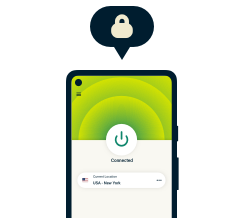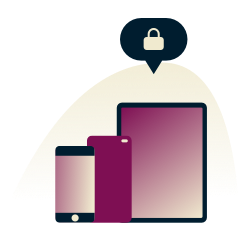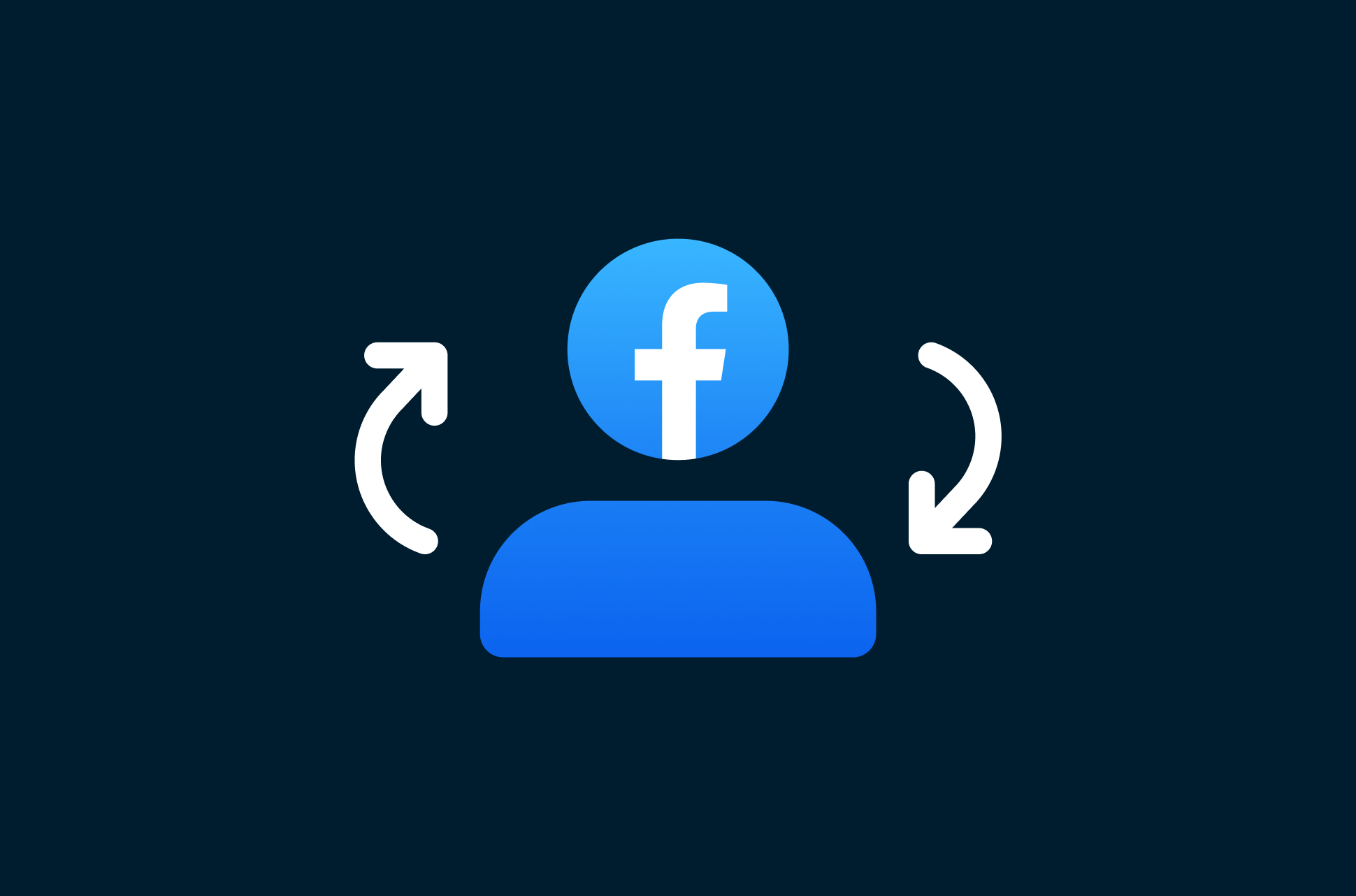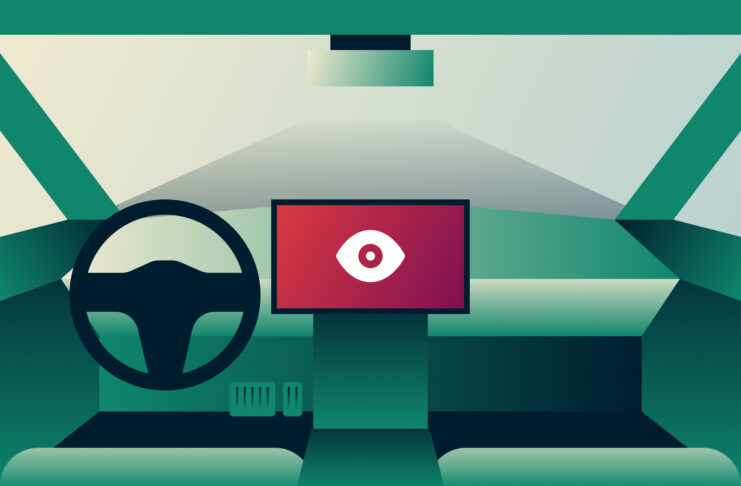Staying safe online is more than just a good habit; it’s a necessity. With malicious hackers, scammers, and other entities constantly finding new ways to access your personal data, it’s important to understand how tools like VPNs contribute to your online security.
Can a VPN always protect you from hackers successfully compromising your data? No, it can’t. No existing cybersecurity software can guarantee your safety from all hacking attempts. This is why staying safe online requires a combination of good habits and updated security tools—all working together to protect your data.
While a VPN isn’t a magic solution to blocking all snooping or cyber attacks, it does offer significant protection in certain areas. Read on to find out how a VPN can help shield your information from common hacking techniques.
Jump to…
5 ways a VPN protects your personal data
How a VPN keeps you safe at home and on public Wi-Fi
How does a VPN protect you from hackers?
What a VPN can’t protect you from
7 additional ways protect yourself against hackers
5 ways a VPN protects your personal data
Ever wondered how a VPN helps keep your digital life secure? Here’s a breakdown of the key features that make VPNs like ExpressVPN a smart choice for enhancing your online security:
1. Encryption
At the heart of a VPN’s defense mechanism is encryption. ExpressVPN uses state-of-the-art encryption to make all the data traveling over your connection unreadable to outsiders like hackers. This encryption is so strong that it would take billions of years to crack, keeping your sensitive information like credit card details or login credentials safe from cybercriminals as they’re transmitted over the internet.
ExpressVPN has also implemented post-quantum protections, positioning itself as a pioneer in the VPN industry. This update, which forms part of our proprietary Lightway protocol, employs advanced encryption methods chosen by the National Institute of Standards and Technology (NIST) to combat threats posed by quantum computing advancements.
2. IP masking
A VPN hides your real IP address, replacing it with one from its server network. This is essential for improving your online anonymity, as it makes it difficult for hackers and others who rely on this information to track your activity across the web or determine your location.
Without your real IP address, it becomes harder for them to target you with certain cyber attacks—specifically those who may target the router you’re connected to. ExpressVPN has one of the largest and fastest VPN server networks available, with high-speed servers installed in central locations across 105 countries.
3. Ad blocker feature
Premium VPNs often include ad blockers, like those available in ExpressVPN’s Android, iOS, and Windows apps, as well as on devices like the Aircove router. ExpressVPN’s app comes with plenty of extras built in, including an ad blocker, a Threat Manager that prevents malicious trackers from loading, a password manager, and parental controls.
Features like these help prevent malicious websites from capturing your personal information and reduce the risk of accidentally interacting with dangerous ads or downloading malware, which are typical strategies used by hackers.
4. Kill switch
A kill switch is an important safety feature. For instance, if your connection drops or gets interrupted, ExpressVPN’s kill switch will cut off your internet connection to prevent your IP address or data from being exposed. Once the VPN reconnects first, it will disable the feature again. This ensures your online activities remain private, even in the case of connection issues.
5. Secure VPN protocols
VPNs use various protocols that determine how your data is transmitted to ensure this happens securely. ExpressVPN’s Lightway protocol is designed for speed and security, incorporating advanced cryptography. Other common protocols used by VPNs are Layer 2 Tunneling Protocol (L2TP), OpenVPN (TCP/UDP), Internet Key Exchange Version 2 (IKEv2), and Wireguard. It’s important to know that not all protocols offer the same level of security or speed.
ExpressVPN is a no-logs VPN, which means we don’t collect or store your connection data. This has been verified with independent audits by firms like KPMG and PwC. Why is this relevant to protecting you from hackers? Because our whole network consists of RAM-only servers. RAM is volatile and can’t permanently store any data, which means even if hackers were to target our servers, they wouldn’t find any data. Every ExpressVPN subscription comes with a 30-day money-back guarantee so you can try the VPN’s features first.
Can you be hacked while using a VPN?
Yes, under certain circumstances, a hacker can still compromise your data or device while you’re using a VPN. VPNs offer a great deal of security and privacy that helps to protect your data against hackers as it travels between your device and the internet, but that protection only goes so far. A VPN encrypts your connection and changes your IP address, but it can’t do anything beyond that.
Let’s say you’re visiting an unencrypted site (meaning the HTTP part of the URL is missing the “S” at the end). A malicious hacker can use that site’s poor security to target your connection with a Man-in-the-Middle (MiTM) attack. If you don’t have a VPN, the attack would likely be successful and the attacker would easily see everything you’re doing, redirect you to a malicious website, or even install malware on your device. Since your VPN is on, all the hacker would see is undecipherable data and the VPN server’s IP address.
In a different scenario, you’re exchanging messages with someone on TikTok and they send you a link that takes you to a malicious website. If you open the link and enter any personal information on that site, a VPN can’t prevent the hacker from stealing your data. It will still prevent the website from seeing your real IP address or compromising your connection, but it can’t keep the hacker from seeing the information you give up willingly.
How a VPN keeps you safe at home and on public Wi-Fi
A VPN helps enhance your online security, whether you’re connected to your home network or using public Wi-Fi. By encrypting your internet traffic and masking your IP address, it offers a robust shield against various cyber threats, ensuring your online activities remain private and secure.
| At home | On public Wi-Fi |
| Secure smart device connections: With the increasing number of smart devices at home, a VPN helps secure the internet connection of these devices, reducing the risk of IoT attacks. | Protection on unsecured networks: Public Wi-Fi networks are often unsecured, making them hotspots for cybercriminals. A VPN encrypts your data, keeping it safe from eavesdroppers and hackers. |
| Enhanced privacy from ISPs: At home, your ISP can track your browsing history. A VPN encrypts your internet traffic, preventing ISPs from monitoring your online activities. | Safe online transactions: When performing transactions like online shopping or banking on public Wi-Fi, a VPN ensures that your sensitive financial information is encrypted and secure. |
| Protection for the whole family: While safeguarding your own online activity, you’ll also want to have the peace of mind that your loved ones are browsing with privacy. One ExpressVPN subscription covers 8 devices and includes parental controls to block explicit content. | Mitigate the risks of man-in-the-middle attacks: Public Wi-Fi is notorious for man-in-the-middle attacks (more on this below). A VPN creates a secure tunnel for your data, preventing hackers from intercepting and manipulating your online communications. |
| Bypass location restrictions: At home, a VPN gives you the tools you need to access a wider range of content from streaming services. | Avoid network restrictions and censorship: On public Wi-Fi, especially in places with strict internet censorship, a VPN helps bypass network restrictions, allowing free access to internet content. |
ExpressVPN offers native support for all major operating systems and lets you connect up to 8 devices simultaneously with your subscription. You can easily manage all your devices, as well as additional security features like built-in parental controls, directly from your account.
How does a VPN protect you from hackers?
When someone says that a VPN protects you from hackers, they’re really referring to specific methods of cyber attack. Here’s a rundown of the most common hacks that certain groups of cybercriminals use, and how a VPN, including features from providers like ExpressVPN, works to protect you:
1. Man-in-the-middle attacks
This is where hackers insert themselves into your digital communications to intercept or alter the data being exchanged. While HTTPS secures website communications, VPNs offer additional protection by encrypting all internet traffic. This broader encryption shields against cookie theft and session hijacking, even on unsecure networks, covering areas where HTTPS might have limitations.
2. DDoS attacks
Short for Distributed Denial of Service, these attacks flood your network with overwhelming amounts of useless data, aimed at overloading and crashing your systems. A VPN helps by hiding your real IP address, making it difficult for attackers to locate and target your network with these data floods.
3. Fake WAP
This is when cybercriminals set up counterfeit Wi-Fi networks to capture unsuspecting users’ data. A VPN secures your connection with encryption, safeguarding your data even if you connect to a deceptive WAP.
4. DNS spoofing
Hackers can manipulate DNS servers to redirect you to fraudulent websites. A quality VPN ensures your DNS queries are securely routed, preventing you from being misdirected to these spoofed sites.
What a VPN can’t protect you from
While VPNs excel in encrypting data in transit and masking IP addresses, providing a significant level of security against many cyber threats, there are areas where their protective reach is limited:
- Direct device access: If a hacker gains direct access to your device, either physically or through malware, a VPN can’t defend against this. Once a device is compromised, the data within can be accessed regardless of VPN protection.
- Human error: No technology can completely safeguard against human mistakes. Clicks on malicious links (such as through phishing) or disabling security features can expose you to risks that a VPN can’t mitigate.
- Malware: While VPNs like ExpressVPN can reduce the risk of malware with its ad blocker by preventing malicious ads from displaying, they can’t prevent malware installation if a user inadvertently downloads it. Malware that makes its way onto your device can operate independently of the VPN’s encryption.
- Phishing attempts: Phishing attacks, often executed through deceptive emails, aim to trick users into revealing sensitive information. VPNs cannot stop users from falling prey to phishing emails.
- Destination-site vulnerabilities: A VPN secures your data en route to its destination, but it does not protect the data once it arrives at the server. If the server is compromised or the data unencrypted, that data is at risk irrespective of the encryption provided during transit.
7 additional ways to protect yourself against hackers
While VPNs offer strong protection in many areas, they are just one piece of the cybersecurity puzzle. To enhance your digital defense against hackers, you should employ a multi-layered approach. Here are some key strategies to complement your VPN usage:
1. Keep Your software updated
Regular updates are vital for maintaining the security of your software. These updates often include patches for newly discovered security vulnerabilities that hackers could exploit.
2. Enable a firewall
A firewall acts as a barrier between your devices and the internet, monitoring incoming and outgoing traffic. It helps block unauthorized access and malicious software, providing an additional layer of security. If possible, enable a firewall on your device as well as your home router.
3. Use antivirus software
Antivirus programs help detect and remove malware from your devices. Keep it running and updated to protect against the latest threats.
4. Secure your router
Your router is the gateway to your home network. Change the default username and password, use strong encryption (like WPA3), and regularly update the firmware to prevent unauthorized access. Many routers can be configured to block external internet access, thereby preventing anyone outside your home from reaching your router’s IP address.
5. Be careful on public Wi-Fi
Avoid accessing sensitive information like bank accounts, and always verify the network’s legitimacy before connecting—especially if you aren’t using a VPN.
6. Be careful what you download
Only download software and files from trusted sources. Unverified downloads can be a way for malware to infiltrate your system.
7. Use strong passwords and two-factor authentication (2FA)
Strong, unique passwords for each account, coupled with the added security of 2FA, significantly reduce the risk of unauthorized access to your accounts. Where possible, make use of hardware-based 2FA or app-based MFA instead of SMSes.
FAQ: How a VPN protects you from hackers
How do you choose a VPN that can protect you from hackers?
When selecting a VPN for protection against hackers, you should consider the following essential features:
- Kill switch: Ensure the VPN has a reliable kill switch. This feature automatically cuts off your internet connection if the VPN connection drops, preventing accidental exposure of your data.
- Secure protocols: Look for VPNs offering robust protocols like OpenVPN, IKEv2, or ExpressVPN’s Lightway. These protocols are crucial for secure and efficient data transmission.
- Supported platforms: Check the VPN’s compatibility with various platforms. A good VPN should support a range of operating systems and devices, ensuring consistent protection across all your gadgets.
- History and credibility: Research the VPN provider’s track record. A provider with a history of prioritizing user privacy and security is generally more trustworthy.
- Strong encryption: Opt for a VPN that uses strong encryption methods, such as AES-256, to safeguard your data. This level of encryption makes it extremely difficult for hackers to decode your information.
If you’re looking for a VPN that can protect you from hackers, consider a premium option like ExpressVPN, which encompasses essential features such as a reliable kill switch, strong encryption, and support across various platforms.
Can a VPN be hacked?
Like any software, VPN apps aren’t immune to hacking. However, the likelihood of a breach varies significantly based on the quality of the VPN service. Premium VPNs, such as ExpressVPN, implement robust security measures, making them less susceptible to cyberattacks compared with their free counterparts. ExpressVPN displays its commitment to security with a bug bounty program that rewards security researchers for finding vulnerabilities that can lead to users’ data getting leaked.
Does private browsing protect you from hackers?
No, private browsing does not protect you from hackers. Private browsing, also known as incognito mode, is a feature of most web browsers that allows you to browse the internet without saving your browsing history, cookies, or site data. This can be useful if you are using a public computer or do not want your browsing activity to be tracked by others who use your computer.
However, private browsing does not make you invisible to hackers. Your ISP can still see your browsing activity, and websites can still track you using your IP address. Additionally, malware that is already installed on your computer can still track your browsing activity, even in private browsing mode.

Protect your online privacy and security
30-day money-back guarantee



























Comments
I have a long time worried about being hacked, now I am happy to install ExpressVpn.